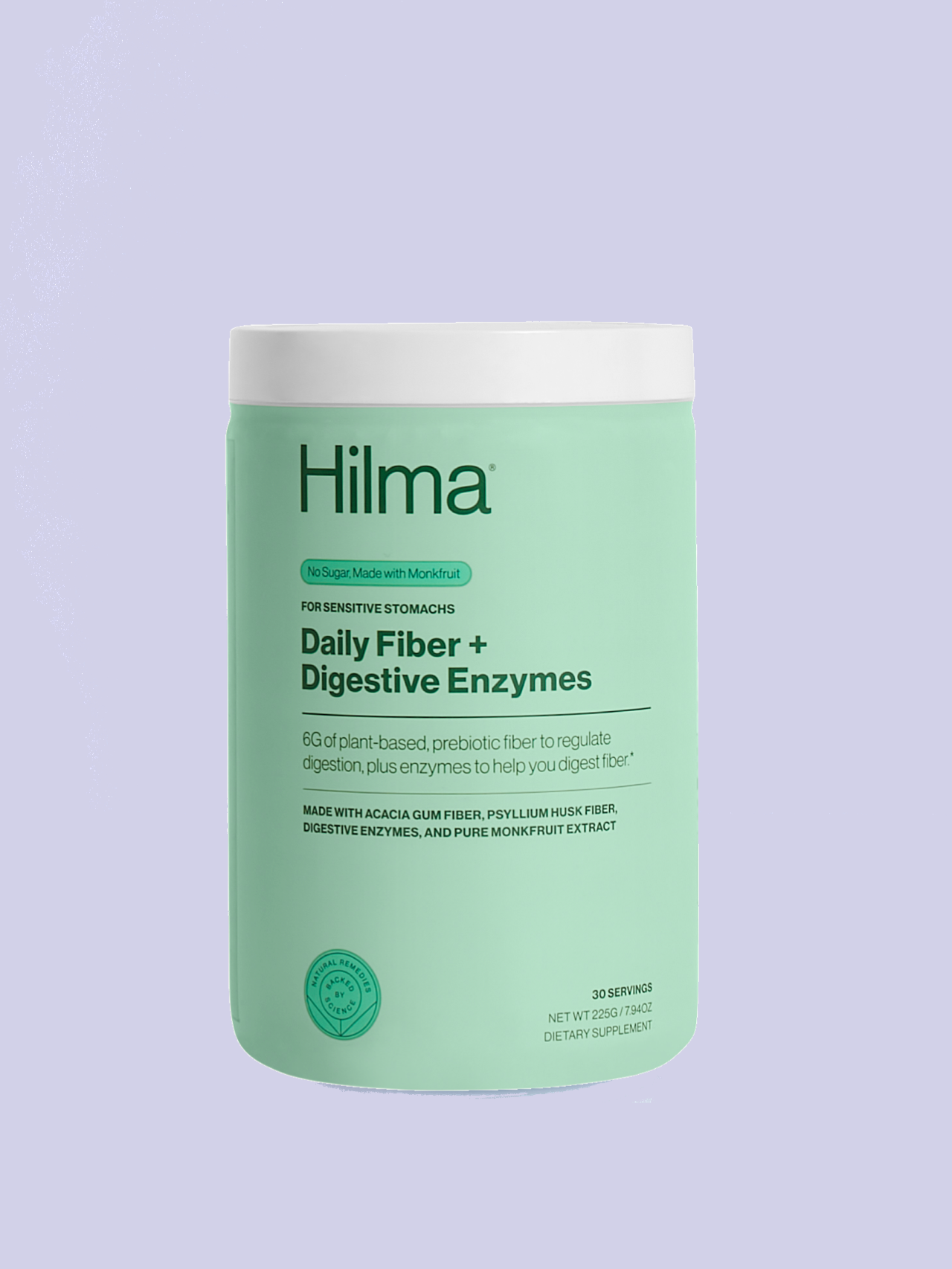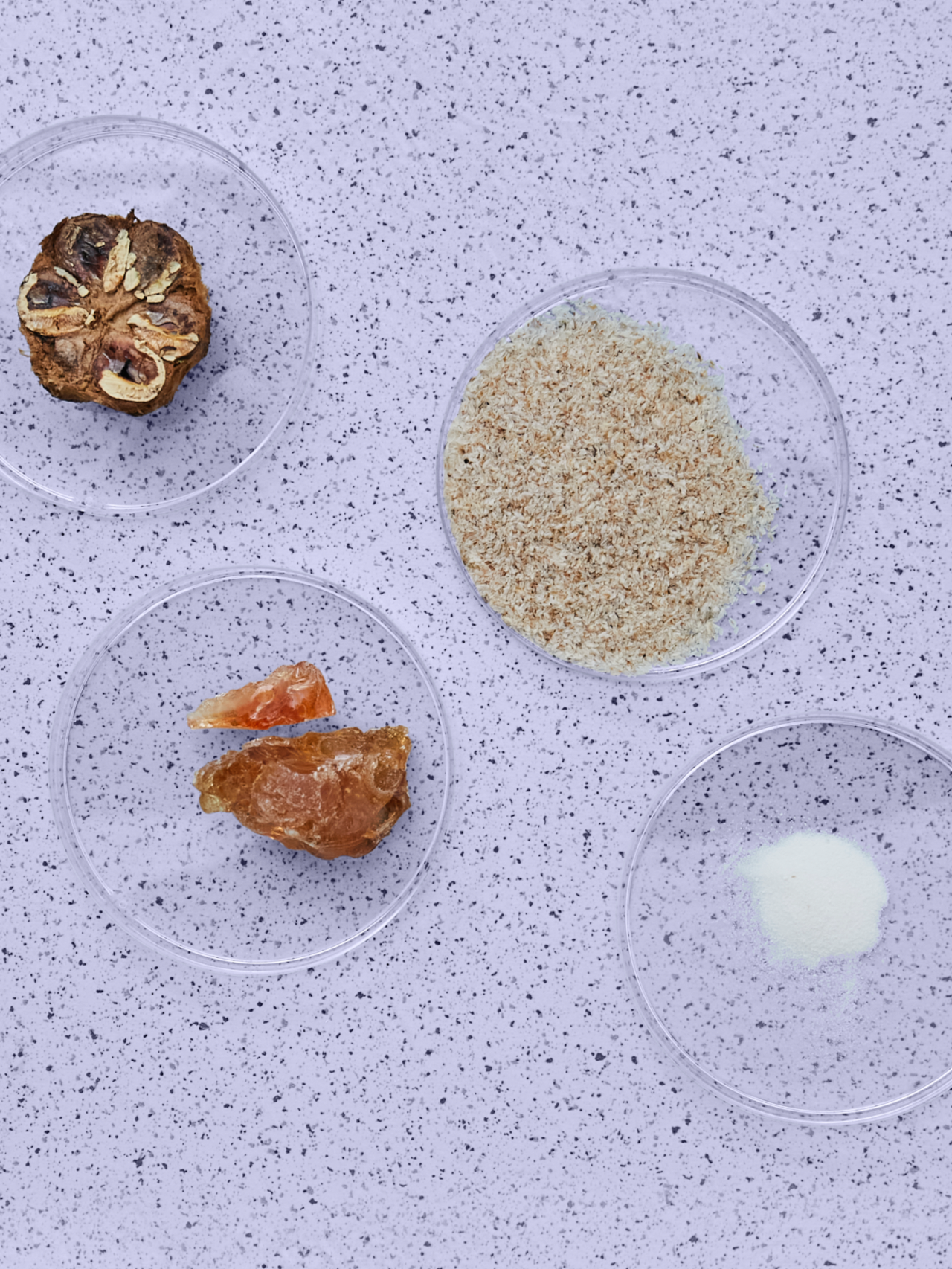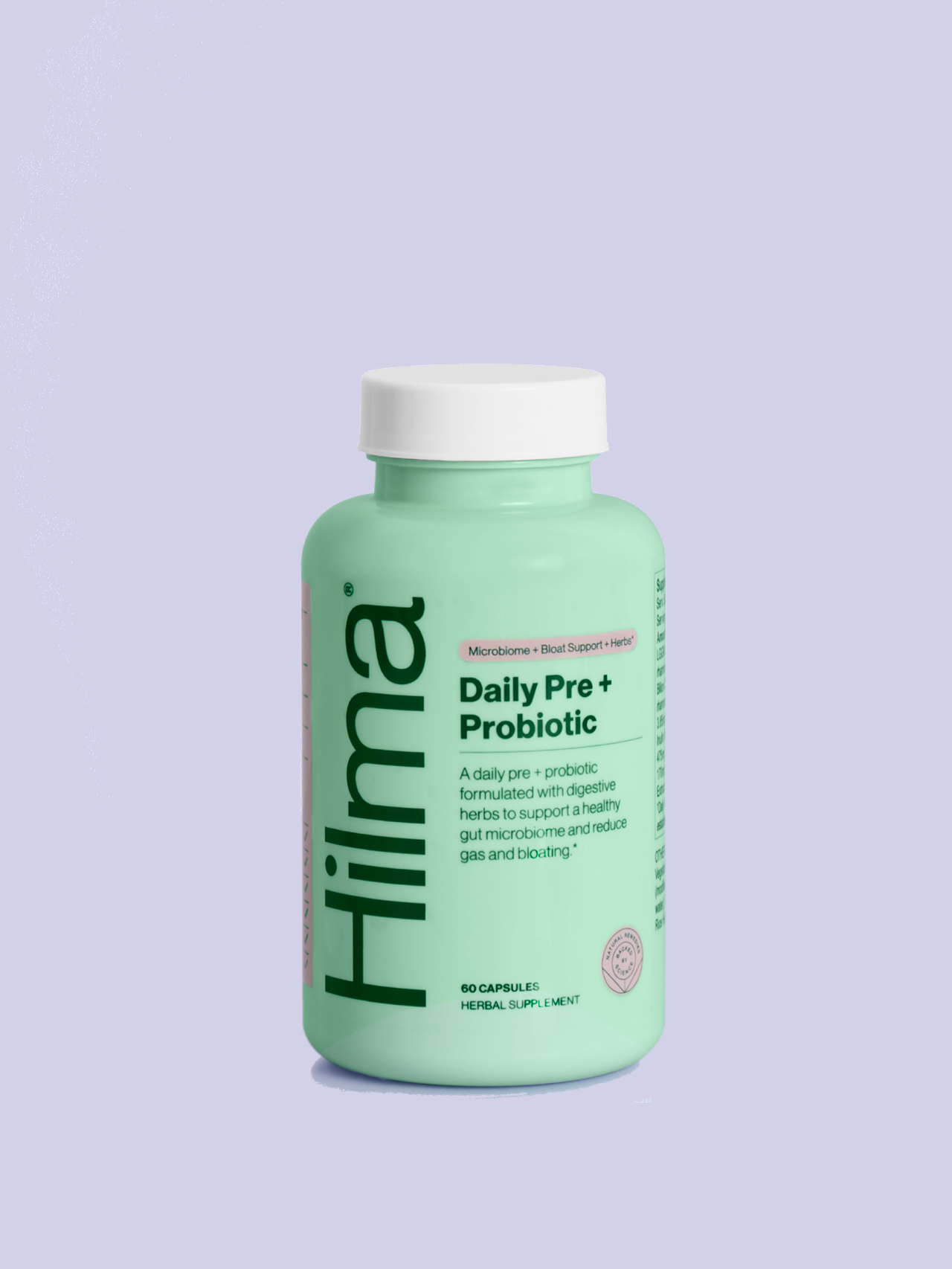
As the weather cools and the leaves turn to shades of orange and red, fall presents a perfect opportunity to embrace seasonal foods that nourish both the body and mind. The bounty of fall offers more than just flavor; it brings a host of nutrients that are particularly supportive of gut health.
Hearty soups to warm cinnamon-spiced drinks introduce gut-friendly compounds like carotenoids, quercetin, and chlorophyll. Plus, the festive nature of fall holidays like Thanksgiving and Halloween allows for moments to bond over meals, connecting with loved ones while indulging in these nutrient-packed dishes.
But fall eating isn’t just about comfort food — it’s also a chance to be mindful of how we nourish our bodies. Taking a deep breath before you dive into a meal you’ve lovingly prepared helps set the stage for better digestion, a practice known to stimulate digestive enzymes and set your body up for proper nutrient absorption.
The Gut Health Benefits of Key Fall Ingredients
Pumpkin
Pumpkin is often seen as the quintessential fall ingredient, but beyond its festive appeal, it’s also a powerhouse for gut health. One of the most significant benefits of pumpkin is its high fiber content. Pumpkin contains both soluble and insoluble fiber, each playing a unique role in digestion.
Soluble fiber dissolves in water to form a gel-like substance, which helps slow digestion and contributes to a feeling of fullness. This type of fiber is especially helpful in regulating blood sugar levels and reducing cholesterol.
Insoluble fiber adds bulk to the stool and helps food pass more quickly through the stomach and intestines, promoting regular bowel movements—key for anyone prone to constipation or irregular digestion.
Whether through roasted pumpkin, soups, or even pureed into smoothies or desserts, it can help improve overall digestive health. For an added bonus, save and roast the seeds from your jack-o-lanterns! Pumpkin seeds are a great source of magnesium and zinc, which play critical roles in muscle function and immune health.
Apples
The saying “an apple a day keeps the doctor away” holds truth, especially when it comes to digestive health. Apples are rich in both soluble fiber (mainly pectin) and water, making them a perfect snack for hydration and gut support.
Pectin, the soluble fiber in apples, acts as a prebiotic, serving as food for the beneficial bacteria in your gut. These good bacteria are crucial for maintaining a balanced gut microbiome, which plays a role in digestion, immune response, and mental health.
Apples also have a high water content, which aids in hydration. Proper hydration is essential for maintaining the mucosal lining of the intestines, which helps keep food moving smoothly through the digestive tract.
Incorporate apples into your meals by adding them to salads, topping them with a nut butter, or simply enjoying them as a snack. If you struggle to digest apples, try stewing them or skinning them and topping with cinnamon!
Cranberries
Cranberries may be a staple at Thanksgiving, but their benefits go far beyond the holiday table. While cranberries are well-known for preventing urinary tract infections (UTIs) due to their proanthocyanidins, which prevent harmful bacteria like E. coli from adhering to the urinary tract lining, they also offer gut health benefits.
Cranberries are rich in antioxidants, which protect cells—including those lining the gut—from oxidative damage. They are also a good source of fiber, which promotes regular bowel movements and supports a healthy gut microbiome.
Adding cranberries to fall dishes can be as simple as sprinkling dried cranberries on salads, using them in baked goods, or creating a homemade cranberry sauce. Just be sure to opt for unsweetened versions to avoid excess sugar, which can be harmful to gut health.
Squash
Winter squashes like butternut, acorn, and spaghetti squash are fall staples that not only provide comfort but are also gentle on the gut. Squash is considered low in FODMAPs, making it a gut-friendly option for those with irritable bowel syndrome (IBS) or other gastrointestinal sensitivities.
Roasted squash can be a delicious addition to soups, salads, “pasta” dishes, or grain bowls. For an even simpler option, try roasting cubes of squash with olive oil and your favorite spices—cinnamon, cumin, or paprika—for a quick, nutritious side dish that can be paired with any protein!
Brussels Sprouts
Brussels sprouts may be a polarizing vegetable, but their health benefits make them worth including in your fall meal plan. These mini cabbages are packed with fiber and antioxidants, particularly sulforaphane, a compound shown to activate detoxification enzymes in the gut. These enzymes help neutralize and eliminate toxins from the body, making Brussels sprouts particularly valuable for gut health and inflammation reduction in the body.
Additionally, the fiber content in Brussels sprouts helps promote regular digestion and supports a healthy gut microbiome.
To make Brussels sprouts more palatable, try roasting them until they’re crispy and adding them to a salad, or sautéing them with olive oil, garlic, and a squeeze of lemon. Pair them with a protein-rich food like ground beef, salmon, or chicken for a balanced and satisfying meal.
Pomegranates
Pomegranates are often celebrated for their potent antioxidants, but they also play a significant role in gut health. The antioxidants in pomegranates, particularly punicalagins, help protect the cells of the gut lining from oxidative stress and damage caused by free radicals. This protective effect contributes to a healthier gut barrier, which is crucial for preventing leaky gut syndrome—a condition where toxins and undigested food particles pass through the gut lining into the bloodstream, leading to inflammation.
Additionally, pomegranates are rich in polyphenols, which act as prebiotics, feeding protective gut bacterial strains like Akkermansia. Akkermansia is known for its role in strengthening the gut lining and promoting a balanced gut environment. By supporting the growth of this beneficial bacteria, pomegranate polyphenols help improve gut barrier function and contribute to better regulation of metabolism, making them an excellent addition to a gut-friendly diet.
The seeds (or arils) of the pomegranate can be sprinkled on salads, added to yogurt, or used in sauces to add a burst of flavor and gut-friendly benefits.
Sweet Potatoes
Sweet potatoes are a fall favorite not only for their natural sweetness and versatility but also for their gut health benefits. They are rich in dietary fiber, particularly soluble fiber, which helps regulate digestion by absorbing water and forming a gel-like consistency in the digestive tract. This can slow digestion, helping with blood sugar control and providing a steady source of energy.
Sweet potatoes are also a great source of resistant starch, a carbohydrate that escapes digestion in the small intestine and feeds the beneficial bacteria in the colon. This process produces short-chain fatty acids, such as butyrate, which are critical for maintaining the integrity of the gut lining and reducing inflammation.
Whether roasted, mashed, pureed, or baked, sweet potatoes are a delicious way to support gut health. Pair them with healthy fats like olive oil or avocado for enhanced nutrient absorption, or add them to stews, soups, and salads for a hearty, fiber-packed meal.
Beets
Beets are another fall vegetable with significant benefits for gut health. High in fiber, beets help promote regular bowel movements and support a healthy digestive tract. Their vibrant red color is due to battalions, potent antioxidants that have anti-inflammatory properties, which can soothe the gut and protect it from oxidative stress.
Beets can be enjoyed roasted, added to salads, or blended into smoothies. For an easy and gut-friendly side dish, try roasting beets with olive oil and herbs or pickling them to preserve their health benefits while adding a unique flavor to your meals.
As you begin to explore these fall foods, don’t forget the importance of mindful eating. The simple act of slowing down, taking a breath before each bite, and savoring your meal can significantly improve digestion. Mindful eating helps engage the body’s parasympathetic nervous system (the “rest and digest” state), promoting the production of digestive enzymes and allowing your gut to process food more efficiently.
Taking time to appreciate the flavors, textures, and smells of your meal can also prevent overeating, a common cause of digestive discomfort. By tuning in to your body’s hunger and fullness cues, you’ll not only improve digestion but also foster a healthier relationship with food that loves you back.
This information is for educational purposes only and should not be taken as medical advice. Please consult a physician before treating any disorder.




